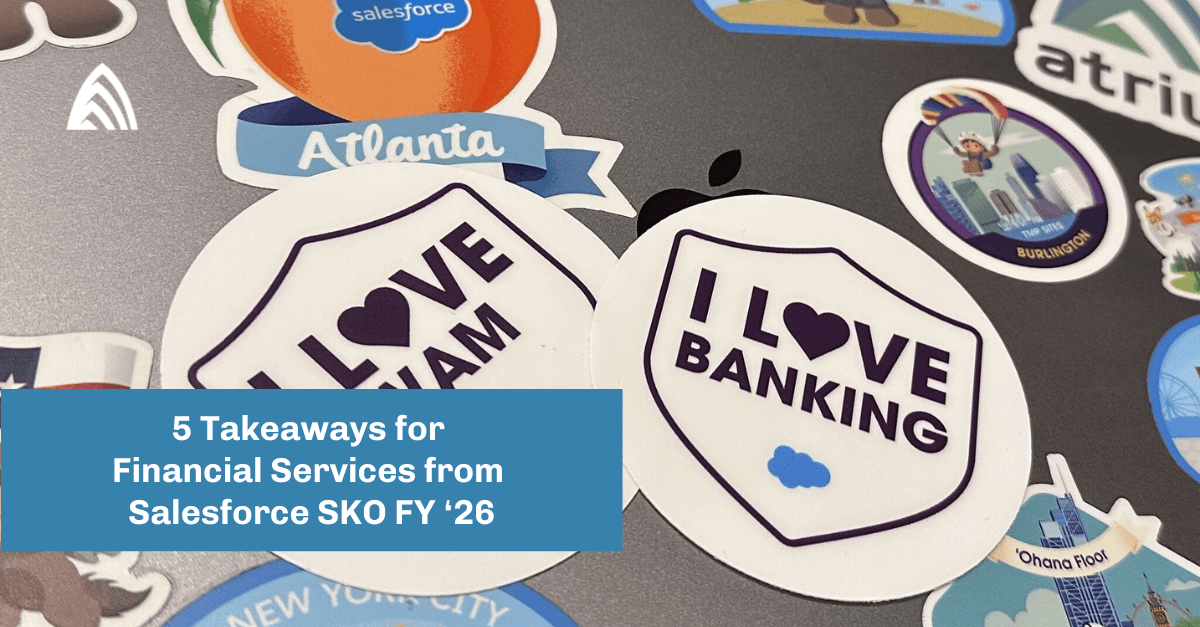It’s been a couple months since Tableau 2024.1 came out and you know what that means — 2024.2 is almost here! Tableau released its list of features for 2024.2 and the enhancements to Tableau Pulse, multi-fact analytics, and other updates have us excited over at Atrium.
One of our favorite items is the upcoming release of Tableau Agent (formerly Einstein Copilot for Tableau). Autonomous agents have been on the upswing recently with many software providers releasing a version that works natively in their own environment and Tableau now has its own. But what exactly will Tableau Agent do upon the initial launch? Let’s dig into that and some other questions we’re hearing from Tableau customers.
1. How do I open Tableau Agent?
Tableau Agent is found in Tableau Cloud in three spots: Tableau Prep, Workbook Descriptions, and Workbook Editor. The first spot you will see it in your data pipeline will be in Tableau Prep. Tableau Agent can help write calculations in Tableau Prep clean nodes.
You will also see Tableau Agent when you go to open a data source or workbook. It can automatically generate descriptions so users know what they are about to open. Finally, and perhaps most importantly, Tableau Agent will be found in the top right corner of the workbook web editor.
2. Can Tableau Agent build vizzes for me?
Absolutely! Tableau Agent can serve as the starting point for a lot of analyses. If you are looking to get a better understanding of what data you’re working with, you can either endlessly move pills around the screen or you can ask Tableau Agent questions. (e.g., “What is my Sales trend over time?” “What Category is responsible for the most Sales?”)
From there, you can dig deeper, asking Tableau Agent to change the viz type or to filter to a specific segment of the data. (e.g., “Show me Sales by Region.” “Change this to a map.” “What Region has the highest Furniture sales?”)
One of the most exciting things here is that Tableau Agent indexes values within your fields. Notice in the first question, we asked it to show us Furniture sales. Furniture isn’t a field, but rather a value within the Category field. Tableau Agent will recognize that and add a filter to the filter pane.
3. Can Tableau Agent write calculations for me?
Definitely. Tableau Agent will write calculations for you with some prompting either in Tableau Prep or the workbook web editor. If in Prep, create a clean step and click “Create a Calculated Field.” From there, you will be able to ask Tableau Agent to create your calculation for you and review what it put together.
The calculation creation works similarly in web edit. Edit a workbook, navigate to a sheet, and you will see the same Einstein head icon in the top right. From there, ask Tableau Agent to create a calculation based on the prompt you ask. (e.g., “Create a calculated field for days between order date and ship date.”)
4. What about those pesky complex LOD or regex calculations that I always have to Google? (Asking for a friend)
Yes! This may be the most impactful initial capability of Tableau Agent. Most developers can write simple profit calculations as quickly as Tableau Agent would be able to create them. However, everyone has run into some LOD or complicated regular expression and spent longer than they’d like to admit looking up the answer. With the appropriate prompt, Tableau Agent can cut down the amount of time you have to spend searching for similar calculations.
5. What if my data source has complicated field names?
Tableau Agent has a couple ways to address this. First, it will do its best to match field names you are using to synonyms or colloquial expressions. For example, if you ask for Revenue over time but only have a field called Sales, Tableau Agent will recognize those terms are frequently used interchangeably and show Sales over time. In the event that Tableau Agent can’t match fields to your prompt, you can update your prompt to be more specific using the actual field name.
If your data source uses field names that are not human-readable or that are highly company-specific, you will have to be more specific in your prompts. This also begs the larger question of how your data fields are being passed into Tableau. If your verbiage is difficult to read or understand, it may be worth revisiting your naming conventions to be more accessible for inexperienced or new-to-the-company developers.
6. Can Tableau Agent create a dashboard for me?
Unfortunately no, although we hope this will be part of one of the upcoming releases. The ability to combine Tableau Agent’s viz creation capabilities with dashboard creation capabilities would be an elite time-saving combo. For now, developers will have to continue setting up containers and formatting dashboards themselves.
Getting started with Tableau Agent
Tableau Agent is an exciting release for Tableau. Perhaps the users who benefit the most from this will be ad-hoc analysts — people who need answers from data but aren’t trained in Tableau.
Some of the most confusion we see among users new to Tableau is in understanding where to move pills to create the viz they want to see. With Tableau Agent, those users can just ask questions and observe how it built their request, accelerating their learning. Additionally, it makes creating calculations that much faster now that you can ask Tableau Agent for what you need to at least get you started.
As great of a tool as Tableau Agent is, it won’t get you all the way there. While it will be great to get your feet wet with the data or get started on creating calculations and vizzes, there are several places you still need experienced analytics team members: Confirming Tableau Agent’s Results, Business Requirements Gathering, and Data Source Creation.
Analytics will only get you so far if they aren’t what the users need or aren’t actionable. Gathering requirements from business users and mapping them to actions taken is integral to a successful suite of analytics. Additionally, the analytics need to be driven by trusted certified data. That’s where a trusted Tableau partner like Atrium comes in. Learn how our data and AI experts can help you make the most out of your Tableau investment.












